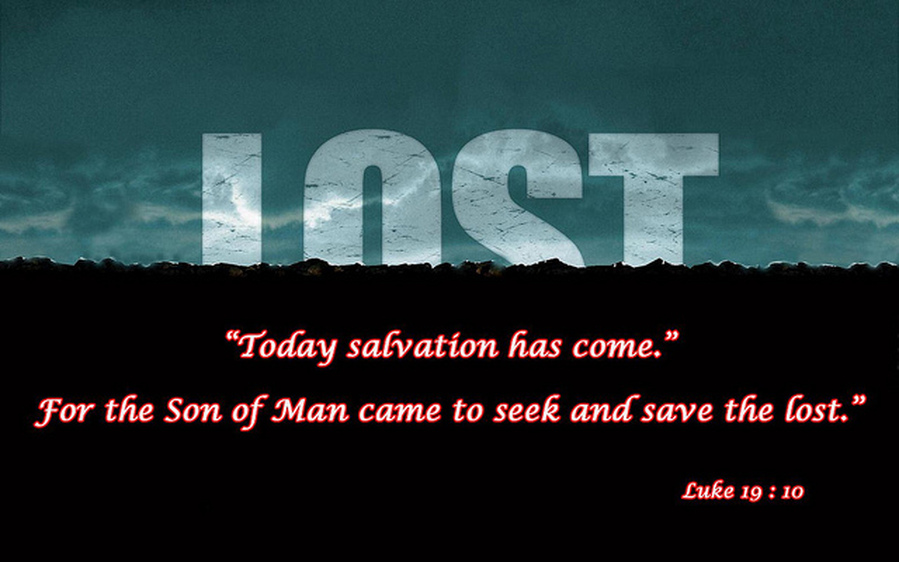March 27
Day 86
God Saves What is Lost

The statement that the "Son of Man came to seek and to save that which is lost (destroyed)" (Luke 19:10) is the key to the meaning of apollumi. This Bible passage refers specifically to Zacchaeus, who was lost (destroyed). Because he was lost (destroyed), he was ready to be found and saved. ♥
The Greek word apollumi is often given an interpretation that means death from which there is no resurrection, or annihilation, a state from which salvation is impossible. But this passage in Luke 19:10 destroys this premise. Instead of the lost being beyond salvation, they alone are eligible for salvation! It is impossible to rescue a man who is already safe. It is only when he is in a "lost" condition denoted by the word apollumi that salvation can operate in his behalf. ♥
The terms seek and save mean the opposite of destroy. So the one who is "destroyed," is really just lost, not annihilated, or no one would seek after him in order to save him. He must be in a state which needs salvation or Christ would not have come to seek and to save him. This passage proves beyond a doubt that "destruction" is a salvageable condition, not a state beyond the reach of salvation. In addition, please notice that only the "lost" are saved. This fact reverses the usual idea of destruction. God seeks what He has lost! ♥
'LOST' is merely unAWAREness.
Restoration rather than destruction. ♥
The Greek word apollumi is often given an interpretation that means death from which there is no resurrection, or annihilation, a state from which salvation is impossible. But this passage in Luke 19:10 destroys this premise. Instead of the lost being beyond salvation, they alone are eligible for salvation! It is impossible to rescue a man who is already safe. It is only when he is in a "lost" condition denoted by the word apollumi that salvation can operate in his behalf. ♥
The terms seek and save mean the opposite of destroy. So the one who is "destroyed," is really just lost, not annihilated, or no one would seek after him in order to save him. He must be in a state which needs salvation or Christ would not have come to seek and to save him. This passage proves beyond a doubt that "destruction" is a salvageable condition, not a state beyond the reach of salvation. In addition, please notice that only the "lost" are saved. This fact reverses the usual idea of destruction. God seeks what He has lost! ♥
'LOST' is merely unAWAREness.
Restoration rather than destruction. ♥